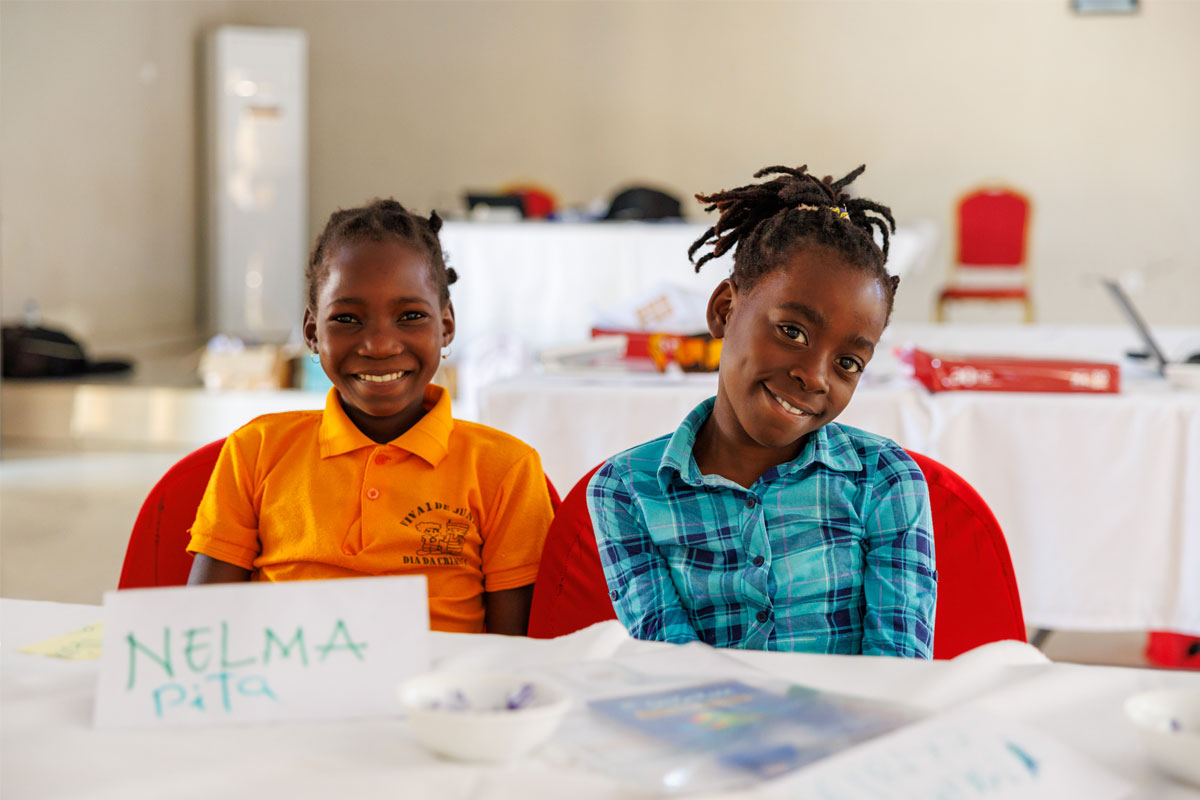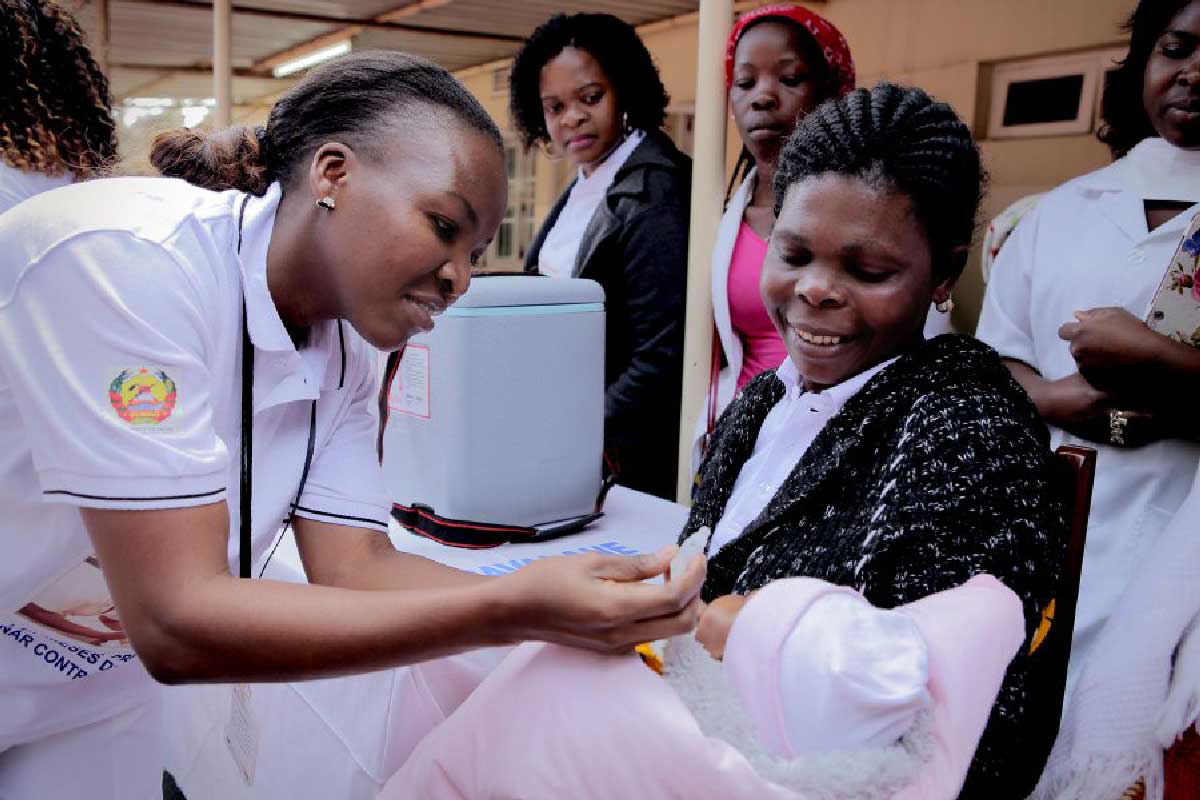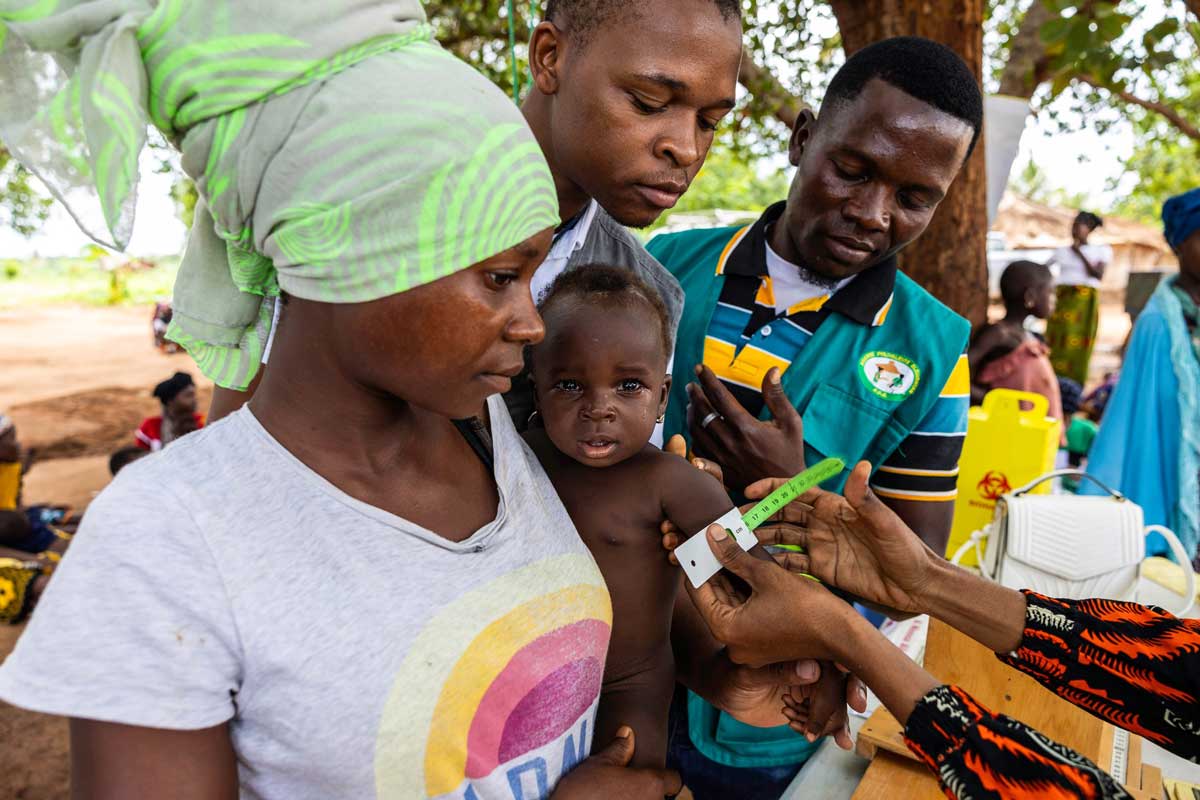Solar power keeps vaccine fridges humming in climate-hit Mozambique
Health workers and mums from Mavumira, a rural village that spent decades in the dark, describe relief at no longer needing to throw out spoiled vaccine.
- 14 August 2025
- 5 min read
- by Winile Ximba
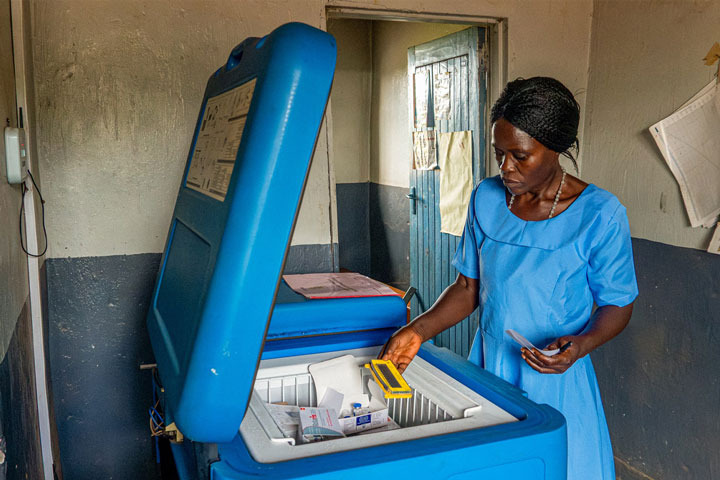
Extreme weather, particularly floods and drought, are stressing Mozambique’s electricity grid both at the point of power generation and in the networks of transmission. Electricity shortages and outages don’t bode well for households, factories and crucially, for vaccines and medicine cold-storage refrigerators. That means that in Mozambique’s rural clinics, climate change is already imperilling care.
But the gradual deployment of fridges running on solar-powered back-up batteries is helping to keep critical drugs potent even during lengthy power outages at some vulnerable rural clinics.
“Vaccine and meds storage was becoming a headache each time electricity is down for prolonged time due to extreme rains,” says Tecla Doso, the head nurse at Mavumira sub-clinic, which got a sunshine-powered back-up in late 2020.
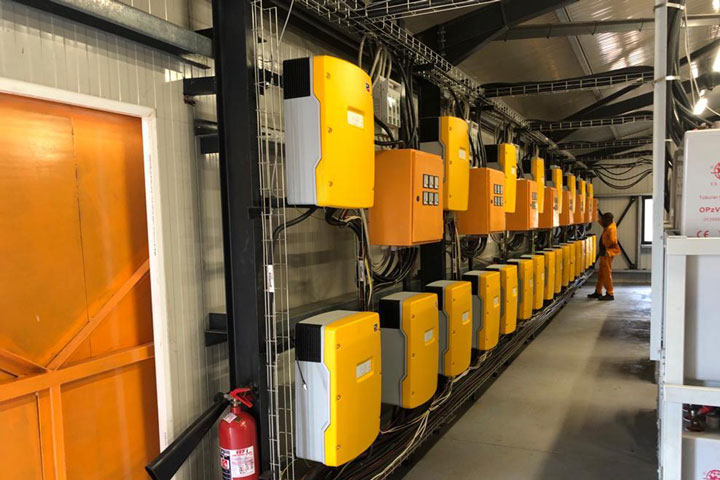
Darkening skies
Mavumira is a rural village in Mozambique’s central Sofala province. It lies 280 km from Beira, the country’s second largest city. Doso’s clinic serves an immediate catchment area of roughly 300 residents and focuses on procedures like rapid HIV fingerprick tests, malaria diagnosis and treatment, and the delivery of childhood vaccines.
Like most rural locations in Mozambique, the village spent decades completely off-grid, with the local clinic and primary school only getting hooked up to the national hydro and thermal electricity network in 2018. Electricity poverty is a major issue country wide – as recently as 2021, 19% of 1,643 clinics managed by the Mozambique government still had no power, and in 2022, only roughly 40% of the population was connected to the power grid.
And it was only months after Mavumira’s clinic got electrified that staff saw how precarious the new connection was. Cyclone Idai rolled in in March 2019, leaving the clinic in the dark.
“That is extreme weather,” says O’Brien Nhachi, a renewable energy and climate researcher who has worked in Mozambique and Zimbabwe. “Droughts and floods damage hydro-generators, power lines, pylons, and transformers frequently, causing outages that extend for weeks. Hospital infrastructure is in harm’s way.”
With 60% of its population living on low-lying ground, Mozambique now lives under ‘the permanent threat of climate disaster’, the World Meteorological Organization warns.
Harvesting sunshine
Unreliable electricity is more than a headache at a health centre. Each time there was an extended power outage due to floods, nurses at Dosa’s clinic were obliged to bin critical temperature-sensitive vaccines and antibiotics.
Have you read?
But now, across rural and urban Mozambique, Chinese-made portable lithium-ion batteries are doing brisk business because they are rechargeable by solar panels mounted on the roofs of homes, businesses, schools and clinics. They are creating a network of mobile mini-grids for low-income neighbourhoods, powering everything from fridges, gadgets and lighting to small cooking stoves, says Nhachi.
The hope is that these grids can help avoid the kind of waste that Tozano Fusire, a local mother and part-time volunteer at the clinic recalls with palpable discomfort. After Cyclone Idai knocked out the power in 2019, she helped chuck out spoiled medicines and vaccine vials. “It was soul crushing because we need these meds – especially us pregnant mums and babies who don’t have bus fare to travel to city hospitals in Beira”.
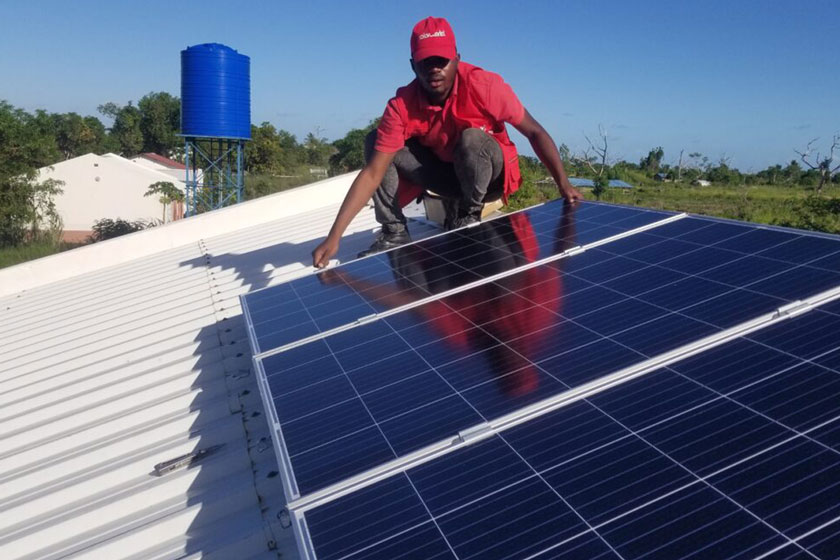
After Idai, which killed 602 in Mozambique alone, authorities ramped up investment in backup solar fridges for rural clinics. Mavumira clinic became a beneficiary in November 2020.
“Apart from the flood’s carnage, we realised hospital medical supplies too were at risk – hence need for solar battery back-ups to maintain the cold storage. From 10 at the time, we have equipped 25 of the 146 public health facilities in Sofala to date,” says Pedro Nulane, a deputy manager for infrastructure maintenance in the Sofala province’s government.
Across Mozambique, the government’s international partners began supporting the health ministry to shore up cold storage of medicines in hospitals and warehouses.
Power glitch protocol
Nowadays, Dosa says, the bin is not the only option. Before or after bad weather events do damage power lines, nurses like Doso are trained to safely and quickly transfer vaccines from the grid-powered fridges to solar back-up fridges. That helps to minimise potential temperature fluctuations, until the normal power lines are fixed and the traditional fridges can run again.
“It has been a tremendous help,” she says. “Our vaccination and medicines dispensing to patients no longer stop even in the aftermath of floods when the Mozambique electricity company takes time to repair pylons and transformers,” she adds. “And we don’t compromise on quality.”
Back-up solar-battery-powered fridges for vaccine storage are a win-win in rural Mozambique, says climate expert, Nhachi. Rural nurses and community health workers gain the technical expertise in vaccine security. Communities don’t get disrupted access to vaccination when weather disasters roll in.
“I no longer panic,” says Fusire, the mum whose kids have always been vaccinated at Mavumira clinic. “Even when Cyclone Freddy struck in 2023, and I had just given birth, and the electricity went out for two weeks, we still got vaccines for my third child because the solar battery-powered fridges kept humming at our clinic and our meds were fresh.”
